#net zero emissions by 2050
Explore tagged Tumblr posts
Text
0 notes
Text
Things the Biden-Harris Administration Did This Week #38
Oct 11-18 2024
President Biden announced that this Administration had forgiven the student loan debt of 1 million public sector workers. The cancellation of the student loan debts of 60,000 teachers, firefighters, EMTs, nurses and other public sector workers brings the total number of people who's debts have been erased by the Biden-Harris Administration using the Public Service Loan Forgiveness to 1 million. the PSLF was passed in 2007 but before President Biden took office only 7,000 people had ever had their debts forgiven through it. The Biden-Harris team have through different programs managed to bring debt relief to 5 million Americans and counting despite on going legal fights against Republican state Attorneys General.
The Federal Trade Commission finalizes its "one-click to cancel" rule. The new rule requires businesses to make it as easy to cancel a subscription as it was to sign up for it. It also requires more up front information to be shared before offering billing information.
The Department of Transportation announced that since the start of the Biden-Harris Administration there are 1.7 million more construction and manufacturing jobs and 700,000 more jobs in the transportation sector. There are now 400,000 more union workers than in 2021. 60,000 Infrastructure projects across the nation have been funded by the Biden-Harris Bipartisan Infrastructure Law. Under this Administration 16 million jobs have been added, including 1.7 construction and manufacturing jobs, construction employment is the highest ever recorded since records started in 1939. 172,000 manufacturing jobs were lost during the Trump administration.
The Department of Energy announced $2 billion to protect the U.S. power grid against growing threats of extreme weather. This money will go to 38 projects across 42 states and Washington DC. It'll upgrade nearly 1,000 miles worth of transmission lines. The upgrades will allow 7.5 gigawatts of new grid capacity while also generating new union jobs across the country.
The EPA announced $125 million to help upgrade older diesel engines to low or zero-emission solutions. The EPA has selected 70 projects to use the funds on. They range from replacing school buses, to port equipment, to construction equipment. More than half of the selected projects will be replacing equipment with zero-emissions, such as all electric school buses.
The Department of The Interior and State of California broke ground on the Salton Sea Species Conservation Habitat Project. The Salton Sea is California's largest lake at over 300 miles of Surface area. An earlier project worked to conserve and restore shallow water habitats in over 4,000 acres on the southern end of the lake, this week over 700 acres were added bring the total to 5,000 acres of protected land. The Biden-Harris Administration is investing $250 million in the project along side California's $500 million. Part of the Administration's effort to restore wild life habitat and protect water resources.
The Department of Energy announced $900 Million in investment in next generation nuclear power. The money will help the development of Generation III+ Light-Water Small Modular Reactors, smaller lighter reactors which in theory should be easier to deploy. DoE estimates the U.S. will need approximately 700-900 GW of additional clean, firm power generation capacity to reach net-zero emissions by 2050. Currently half of America's clean energy comes from nuclear power, so lengthening the life space of current nuclear reactors and exploring the next generation is key to fighting climate change.
The federal government took two big steps to increase the rights of Alaska natives. The Departments of The Interior and Agricultural finalized an agreement to strengthen Alaska Tribal representation on the Federal Subsistence Board. The FSB oversees fish and wildlife resources for subsistence purposes on federal lands and waters in Alaska. The changes add 3 new members to the board appointed by the Alaska Native Tribes, as well as requiring the board's chair to have experience with Alaska rural subsistence. The Department of The Interior also signed 3 landmark co-stewardship agreements with Alaska Native Tribes.
The Department of Energy announced $860 million to help support solar energy in Puerto Rico. The project will remove 2.7 million tons of CO2 per year, or about the same as taking 533,000 cars off the road. It serves as an important step on the path to getting Puerto Rico to 100% renewable by 2050.
The Department of the Interior announced a major step forward in geothermal energy on public lands. The DoI announced it had approved the Fervo Cape Geothermal Power Project in Beaver County, Utah. When finished it'll generate 2 gigawatts of power, enough for 2 million homes. The BLM has now green lit 32 gigawatts of clean energy projects on public lands. A major step toward the Biden-Harris Administration's goal of a carbon pollution-free power sector by 2035.
Bonus: President Biden meets with a Kindergarten Teacher who's student loans were forgiven this week
#Thanks Biden#Joe Biden#kamala harris#student loans#click to cancel#politics#US politics#american politics#native rights#jobs#the economy#climate change#climate action#Puerto Rico
2K notes
·
View notes
Text
#Tokyo#Formula E#Electric vehicle racing#Zero-emission vehicles#Tokyo Big Sight#Koto Ward#Tokyo Bay waterfront#FIA Formula E World Championship#Carbon dioxide emissions#Net zero by 2050#Motorsport event#International Automobile Federation (FIA)#Gen3 electric race car#Sustainable transportation#Climate change#Noise reduction#Urban racing#London#Sao Paulo#Electric vehicle adoption#Sustainable future#Motorsport revolution#Cutting-edge technology#Global shift#Cleaner and greener automotive industry#japan#innovation#decarbonization#clean energy#environmental impact
0 notes
Text
In its report entitled Strategies for Affordable and Fair Clean Energy Transitions, the IEA said that more investment would be needed if the world was to achieve the 2050 net-zero emissions target. The operating costs of the global energy system are expected to be cut by more than half over the next decade compared to a transition trajectory based on today's policy settings, with the end result being an affordable and fairer energy system for consumers.
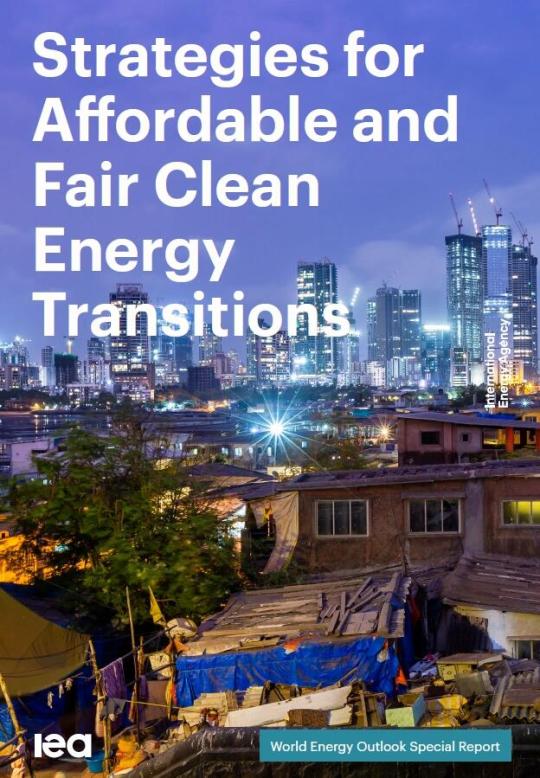
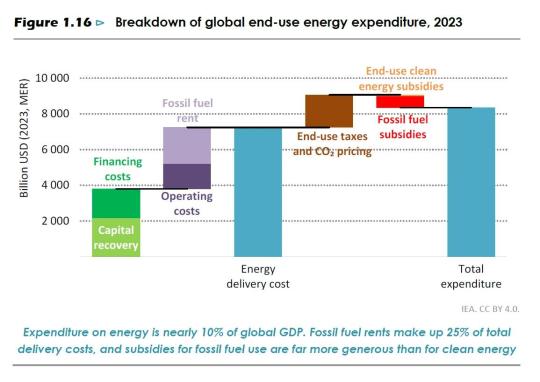
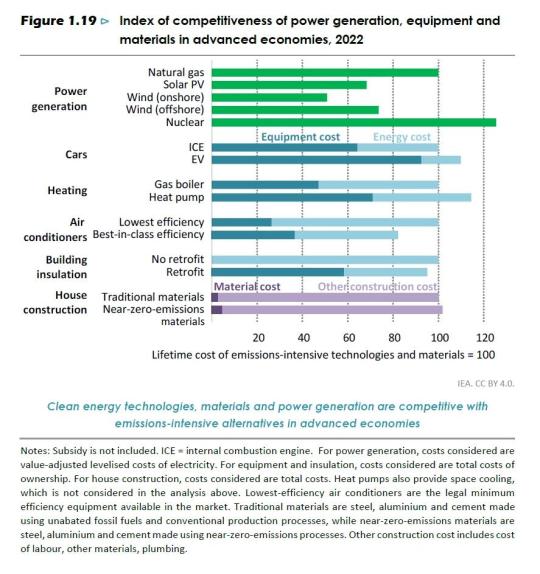
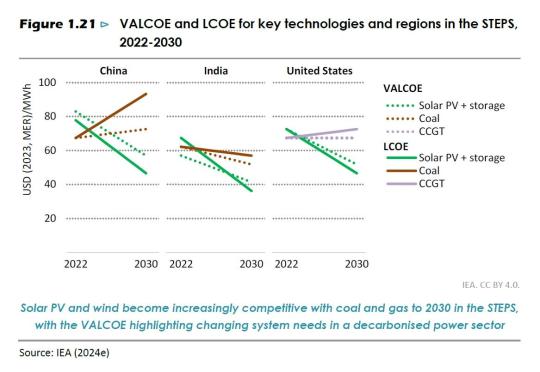
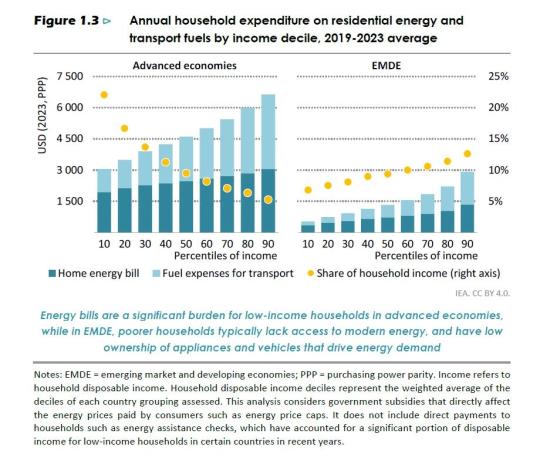
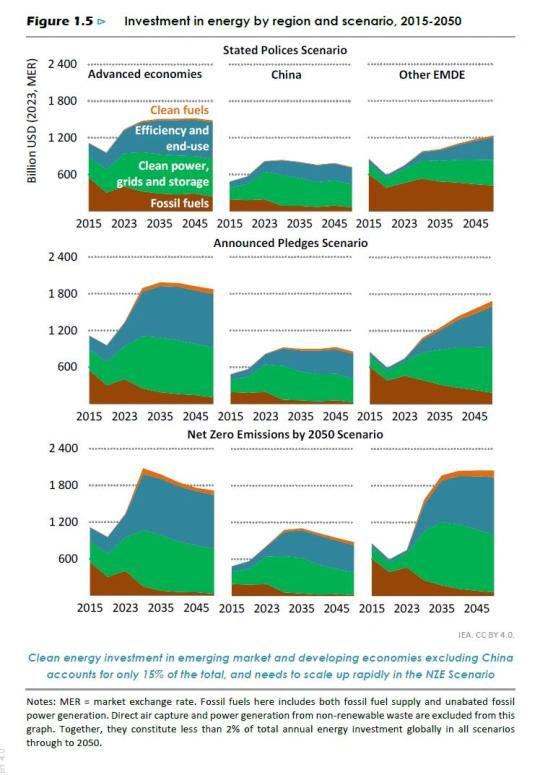
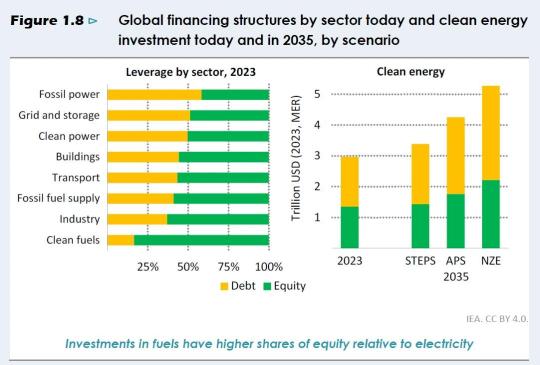
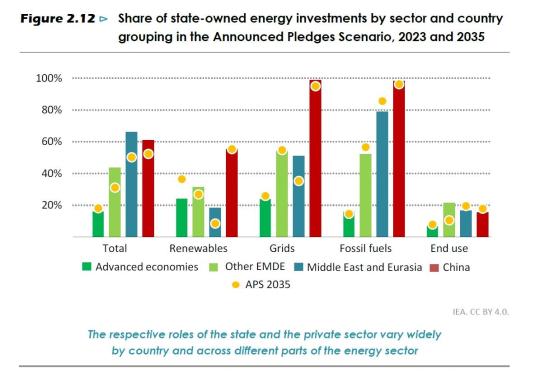
179 notes
·
View notes
Text
There are really just two issues that matter this election:
One is climate- Biden put us on a path to halve carbon emissions in 6 years and reach net zero by 2050. Harris will continue that. Trump will actually increase use of fossil fuels while gutting regulations.
Every person on Earth will be harmed and endangered by that, regardless of your identity, location, or views.
The other issue is the peaceful transfer of power. Whatever problems you may have with Harris, she'll leave peaceably in 4 or 8 years. Trump will not. This is not fear mongering or hyperbole. He has said that if he wins we'll never need to vote again. He met his last electoral defeat by inciting and enabling a violent insurrection. Sure, he's an old man, but he's surrounded by young men who share the same contempt for democracy and the rule of law- like his Vice Presidential nominee, JD Vance, who will assume power if he dies in office.
We were lucky to get him out once, barely. His people are much more prepared for a coup now, he'll have broad legal immunity now thanks to SCOTUS, and he's openly vowed to become "a dictator on day one" and deploy troops on American streets.
Any issue with Harris is a temporary problem, and you can try again in 4 or 8 years. With Trump, you can't.
THE ONLY REASON TO ELECT TRUMP IS IF YOU ACTIVELY WANT THE WORLD TO BURN. And don't care how many actual people burn in the process. And if that is your position, then by your own choice you are an enemy of all humanity.
#US#Politics#Election#2024#Climate Crisis#Net Zero Emissions#Democracy#Rule Of Law#Peaceful Transfer Of Power#January 6th#Civil War#JD Vance#Presidential Immunity#Dictator On Day One#Fuck Trump#Lock Him Up#Both Sides Are Not The Same#We Are Not Going Back#Kamala Harris 2024#Vote#Vote Blue#Vote Blue To Live
249 notes
·
View notes
Text
"The amount of electricity generated by the UK’s gas and coal power plants fell by 20% last year, with consumption of fossil fuels at its lowest level since 1957.
Not since Harold Macmillan was the UK prime minister and the Beatles’ John Lennon and Paul McCartney met for the first time has the UK used less coal and gas.
The UK’s gas power plants last year generated 31% of the UK’s electricity, or 98 terawatt hours (TWh), according to a report by the industry journal Carbon Brief, while the UK’s last remaining coal plant produced enough electricity to meet just 1% of the UK’s power demand or 4TWh.
Fossil fuels were squeezed out of the electricity system by a surge in renewable energy generation combined with higher electricity imports from France and Norway and a long-term trend of falling demand.
Higher power imports last year were driven by an increase in nuclear power from France and hydropower from Norway in 2023. This marked a reversal from 2022 when a string of nuclear outages in France helped make the UK a net exporter of electricity for the first time.
Carbon Brief found that gas and coal power plants made up just over a third of the UK’s electricity supplies in 2023, while renewable energy provided the single largest source of power to the grid at a record 42%.
It was the third year this decade that renewable energy sources, including wind, solar, hydro and biomass power, outperformed fossil fuels [in the UK], according to the analysis. Renewables and Britain’s nuclear reactors, which generated 13% of electricity supplies last year, helped low-carbon electricity make up 55% of the UK’s electricity in 2023.
[Note: "Third year this decade" refers to the UK specifically, not global; there are several countries that already run on 100% renewable energy, and more above 90% renewable. Also, though, there have only been four years this decade so far! So three out of four is pretty good!]
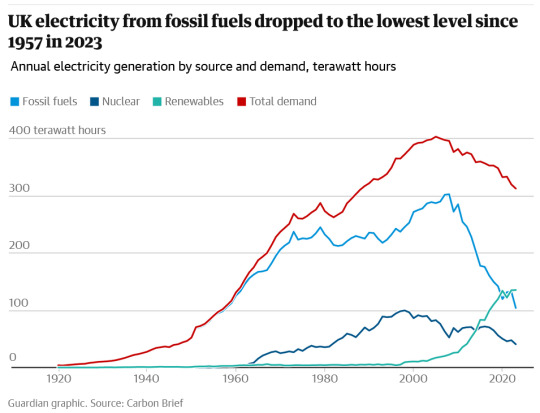
Dan McGrail, the chief executive of RenewableUK, said the data shows “the central role that wind, solar and other clean power sources are consistently playing in Britain’s energy transition”.
“We’re working closely with the government to accelerate the pace at which we build new projects and new supply chains in the face of intense global competition, as everyone is trying to replicate our success,” McGrail said.
Electricity from fossil fuels was two-thirds lower in 2023 compared with its peak in 2008, according to Carbon Brief. It found that coal has dropped by 97% and gas by 43% in the last 15 years.
Coal power is expected to fall further in 2024 after the planned shutdown of Britain’s last remaining coal plant in September. The Ratcliffe on Soar coal plant, owned by the German utility Uniper, is scheduled to shut before next winter after generating power for over 55 years.
Renewable energy has increased sixfold since 2008 as the UK has constructed more wind and solar farms, and the large Drax coal plant has converted some of its generating units to burn biomass pellets.
Electricity demand has tumbled by 22% since its peak in 2005, according to the data, as part of a long-term trend driven by more energy efficient homes and appliances as well as a decline in the UK’s manufacturing sector.
Demand for electricity is expected to double as the UK aims to cut emissions to net zero by 2050 because the plan relies heavily on replacing fossil fuel transport and heating with electric alternatives.
In recent weeks [aka at the end of 2023], offshore wind developers have given the green light to another four large windfarms in UK waters, including the world’s largest offshore windfarm at Hornsea 3, which will be built off the North Yorkshire coast by Denmark’s Ørsted."
-via The Guardian, January 2, 2024
#uk#united kingdom#england#scotland#wales#northern ireland#electricity#renewables#renewable energy#climate change#sustainability#hope posting#green energy#fossil fuels#oil#coal#solar power#wind power#environment#climate action#global warming#air pollution#climate crisis#good news#hope
394 notes
·
View notes
Text
According to the president of COP28, the latest round of UN climate negotiations in the United Arab Emirates, there is "no science" indicating that phasing out fossil fuels is necessary to restrict global heating to 1.5°C. President Sultan Al Jaber is wrong. There is a wealth of scientific evidence demonstrating that a fossil fuel phase-out will be essential for reining in the greenhouse gas emissions driving climate change. I know because I have published some of it. Back in 2021, just before the COP26 climate summit in Glasgow, my colleagues and I published a paper in Nature entitled Unextractable fossil fuels in a 1.5°C world. It argued that 90% of the world's coal and around 60% of its oil and gas needed to remain underground if humanity is to have any chance of meeting the Paris agreement's temperature goals. Crucially, our research also highlighted that the production of oil and gas needed to start declining immediately (from 2020), at around 3% each year until 2050. This assessment was based on a clear understanding that the production and use of fossil fuels, as the primary cause of CO₂ emissions (90%), needs to be reduced in order to stop further heating. The Intergovernmental Panel on Climate Change (IPCC) says that net zero CO₂ emissions will only be reached globally in the early 2050s, and warming stabilized at 1.5°C, if a shift away from fossil fuels to low-carbon energy sources begins immediately.
Continue Reading.
323 notes
·
View notes
Text
The U.K.'s last coal-fired power plant was to close permanently on Monday — bringing an end to 140 years of reliance on the fossil fuel to generate electricity in Britain. The move will make the U.K. the first major global economy to completely phase out coal as an energy source.
The Ratcliffe-on-Soar Power Station, located near a small village in southern England, was to close its doors for the last time at midnight local time. The power station has been generating electricity since 1967 and "played a key role in keeping the nation's lights on," its parent company Uniper said in a statement Monday.
"Since commissioning it has produced enough energy to make more than 21 trillion cups of tea and its 2GW capacity is enough to power two million homes," the company said.
Peter O'Grady, the plant's manager, told CBS News it was "an emotional day."
"When I started my career 36 years ago, none of us imagined a future without coal generation in our lifetimes. I am incredibly proud of what we've achieved together over the years and to be part of this energy milestone as the country focuses on a cleaner energy future," he said.
The move sees the U.K. make good on one of the environmental pledges made by the government as part of a wider strategy to combat climate change and achieve net-zero greenhouse gas emissions by 2050. Coal is considered the single most damaging fossil fuel for the environment, according to Greenpeace, as it releases more carbon dioxide than oil or gas. Coal also produces mercury and arsenic, and small particles of soot which contribute to air pollution.
Thirteen countries have already phased out coal as a source of energy, according to independent climate think tank Ember, but Britain will be the only member of the G7 group of economically advanced, democratic nations to do so thus far.
In the G7's largest economy by a significant margin, the U.S., the Department of Energy acknowledges that coal is still "used to generate a significant chunk of our nation's electricity" — about 16% of the total share in 2023, according to the Energy Information Administration.
U.K. Energy Minister Michael Shanks said in a statement sent Monday to CBS News that the closure of the Ratcliffe power station "marks the end of an era, and coal workers can be rightly proud of their work powering our country for over 140 years."
"The era of coal might be ending, but a new age of good energy jobs for our country is just beginning," Shanks said.
The first coal plant in Britain went online in 1882, when Thomas Edison's Holborn Viaduct coal plant started generating electricity for public use. It was a first-of-its-kind station, and it burned enough coal to provide energy to light 1,000 lamps in the City of London.
Despite efforts to make the industry cleaner, the fundamentals of coal-fired electricity generation have remained largely unchanged since Edison's company fired up its boilers. The process involves burning the fossil fuel to heat water to create steam, which spins a turbine to produce electricity.
44 notes
·
View notes
Text
The public wants to save the planet – as long as it doesn’t personally inconvenience them
“Back in July, Just Stop Oil (JSO) experienced something unusual – they found they were the ones being protested. An alternative group called Just Stop Pissing People Off attempted to block Just Stop Oil from engaging in disruptive protests and interrupted their events, saying that the climate crisis is real but that JSO is distracting and alienating people. The counter-protests tell us a great deal about Britain’s contradictory attitude to the climate crisis.
“Broadly, Brits understand that the climate crisis climate change is a major problem. 65% of us are worried about the climate crisis (versus just 28% who aren’t) while the same proportion supports the government’s aim of reducing Britain’s net carbon emissions to zero by 2050 ... Eight in 10 back more tree planting, subsidies for energy-efficient homes and higher taxes for high-carbon companies. 62% would support a requirement for all energy production to come from renewable sources. But this enthusiasm has its limits.
“When asked if they would back policies that would impose limits on what they personally can do, Brits quickly turn against them. For instance, two-thirds oppose the idea of a limit on how much meat they can buy, and a majority oppose banning petrol and diesel cars ... Even though 62% of voters back the idea of requiring all energy to be renewable, just 39% want to ban new North Sea oil fields, and a mere 32% want to prohibit the sale of gas boilers ...
“The British public is not as supportive of action on the climate crisis as many environmentalists would hope. We favour general, uncontentious ideas – net zero, tree-planting, tax rises on high-carbon companies – but when asked for our opinion on a climate policy that would directly affect us personally, we baulk. This is partly due to worries about the cost of living, but it’s also about avoiding personal inconvenience.
“Just Stop Pissing Everyone Off perfectly encapsulates the British attitude to the climate crisis: sure, it’s a problem, but not ours. As Homer Simpson once asked: ‘Can’t someone else do it?’”
#just stop oil#climate activists#climate activism#activism#climate crisis#climate breakdown#climate change#climate#tree planting#home insulation#low emission zones#renewable energy#renewables#oil and gas#fossil fuels#motorists#public opinion#brits#uk
286 notes
·
View notes
Text
Texas, USA: A single hailstorm reduced thousands of acres of solar panels into a pile of debris, leaching toxic materials like lead and cadmium into the soil. Expect a lot more of this as a result of the aggressive globalist push to achieve "net zero emissions" by 2050. September 28th 2024
Une tempête de grêle au Texas a réduit des milliers d'hectares de panneaux solaires en un tas de débris, libérant des matières toxiques comme le plomb et le cadmium dans le sol. Ce phénomène se reproduira à l'avenir en raison de la volonté agressive des mondialistes d'atteindre zéro émission de polluants d'ici 2050 31 mars 2024
26 notes
·
View notes
Text
A group of leading climate scientists have declared that the so-called ‘climate emergency’ is a scam being perpetuated by the global elite.
A two-day climate conference in Prague, organised by the Czech division of the international Climate Intelligence Group (Clintel), which took place on November 12-13 in the Chamber of Deputies of the Czech Republic in Prague, “declares and affirms that the imagined and imaginary ‘climate emergency’ is at an end”.
Wattsupwiththat.com reports: The communiqué, drafted by the eminent scientists and researchers who spoke at the conference, makes clear that for several decades climate scientists have systematically exaggerated the influence of CO2 on global temperature.
The high-level scientific conference also declared:
“The Intergovernmental Panel on Climate Change, which excludes participants and published papers disagreeing with its narrative, fails to comply with its own error-reporting protocol and draws conclusions some of which are dishonest, should be forthwith dismantled.”
The declaration supports the conclusions of the major Clintel report The Frozen Climate Views of the IPCC [presented to the Conference by Marcel Crok, Clintel’s co-founder].
Moreover, the scientists at the conference declared that even if all nations moved straight to net zero emissions, by the 2050 target date the world would be only about 0.1 C cooler than with no emissions reduction.
So far, the attempts to mitigate climate change by international agreements such as the Paris Agreement have made no difference to our influence on climate, since nations such as Russia and China, India and Pakistan continue greatly to expand their combustion of coal, oil and gas.
The cost of achieving that 0.1 C reduction in global warming would be $2 quadrillion, equivalent to 20 years’ worldwide gross domestic product.
18 notes
·
View notes
Text
One simple way to look at it is to take the rate of emissions reductions achieved in countries that have successfully decoupled, and see how long it would take for them to fully decarbonize. That’s essentially what Jefim Vogel and Jason Hickel — researchers at the University of Leeds and the Autonomous University of Barcelona, respectively — did in the Lancet Planetary Health study. They found that, if 11 high-income countries continued their achieved rates of emissions reduction, it would take them more than 220 years to cut emissions by 95 percent — far longer than the net-zero-by-2050 timeline called for by climate experts. “The decoupling rates achieved in high-income countries are inadequate for meeting the climate and equity commitments of the Paris Agreement and cannot legitimately be considered green,” the authors wrote. In an interview with Grist, Vogel likened optimism around gradual decoupling to saying, “Don’t worry, we’re slowing down,” while the Titanic races toward an iceberg.
[...]
“Absolute decoupling is not sufficient to avoid consuming the remaining CO2 emission budget under the global warming limit of 1.5 degrees C or 2 degrees C and to avoid climate breakdown,” concluded the Intergovernmental Panel on Climate Change in its most recent assessment. Instead of making growth greener, some economists call for a whole new economic paradigm to address converging social and ecological crises. They call it “post-growth,” referring to a reorientation away from GDP growth and toward other metrics, like human well-being and ecological sustainability. Essentially, they want to prioritize people and the planet and not care so much what the stock market is doing. This would more or less free countries from the decoupling dilemma, since it eliminates the growth imperative altogether. Raworth, the professor at Amsterdam University of Applied Sciences, calls her version of the post-growth agenda “doughnut economics.” In this visual model, the inner ring of the doughnut represents the minimum amount of economic activity needed to satisfy basic needs like access to food, water, and shelter. The outer ring signifies the upper limits of natural resource use that the Earth can sustain. The goal, she argues, is for economies to exist between the inner and outer rings of the doughnut, maintaining adequate living standards without surpassing planetary limits. “Our economies need to bring us into the doughnut,” Raworth told Grist. “Whether GDP grows needs to be a secondary concern.” Vogel and Hickel go a little further. They call for a planned, deliberate reduction of carbon- or energy-intensive production and consumption in high-income countries, a concept known as “degrowth.” The rationale is that much of the energy and resources used in high-income countries goes toward carbon-intensive products that don’t contribute to human welfare, like industrial meat and dairy, fast fashion, weapons, and private jets. Tamping down this “less necessary” consumption could slash greenhouse gas emissions, while lower energy demand could make it more feasible to build and maintain enough energy infrastructure. Some research suggests that reducing energy demand could limit global warming to 1.5 degrees C without relying on unproven technologies to draw carbon out of the atmosphere.
75 notes
·
View notes
Text
Things Biden and the Democrats did, this week. #5
Feb 9-16 2024
The Department of Education released the first draft for a wide ranging student loan forgiveness plan. After Biden's first attempt at student debt forgiveness was struck down at the Supreme Court in 2023, this new plan is an attempt to replace it with something that will hold up in court. The plan hopes to forgive debt for anyone facing "financial hardship" which has been as broadly defined as possible. Another part of the plan hopes to eliminate $10-20,000 in interest from all student loans, as well as a wide ranging public Information push to inform people of other forgiveness programs they qualify for but don't know about.
The House passed 1.2 Billion Dollars to combat human trafficking, including $175 million in housing assistance to human trafficking victims
The Department of Transportation announced $970 Million for improvements at 114 airports across 44 states and 3 territories. They include $40 million to O'Hare International in Chicago to improve passenger experience by reconfiguring TSA and baggage claims, and installing ADA compliant bathrooms(!). The loans will also go to connecting airports to mass transit, boosted sustainability, installing solar and wind power, and expanding service to under served committees around the country.
Medicare & Medicaid released new guidelines to allow people to pay out of pocket prescription drug coats in monthly installments rather than as a lump sum. This together with capping the price of certain drugs and penalties for drug companies that rise prices over inflation is expected to save the public millions on drug coasts and assure people don't pass on a prescription because they can't pay upfront
The EPA announced its adding 150 more communities to its Closing America's Wastewater Access Gap Community Initiative. 2.2 Million Americans do not have basic running water and indoor plumbing. Broken and unreliable wastewater infrastructure exposed many of those to dangerous raw sewage. These Americans live primarily in poor and rural communities, many predominantly Black communities in the south as well as those on tribal lands. The program is aiming to close the wastewater gap and insure all Americans have access to reliable clear water.
The White House announced deferred action for Palestinians in the US. This means any Palestinian living in the United States, no mater their legal status, can not be deported for any reason for the next 18 months.
The Department of Energy announced $60 million in investment into clean geothermal energy. The plan will hopefully lead to a 90% decrease in the coasts of geothermal. DOE estimates hold that geothermal might be able to power the hopes of 65 million Americans by 2050 making it a key step in the Biden administration plan for a carbon-free grid by 2035 and net-zero emissions by 2050.
The EPA launched $83 million to help improve air quality monitoring across America. With updated equipment local agencies will be better able to report on air quality, give more localized reports of bad air quality and the country will be better equipped to start mitigating the problem
The Department of Energy announced $63 million in investments in domestic heat-pump manufacturing. Studies have shown that heat-pumps reduce green house gases by 50% over the most efficient condensing gas boilers, as technology improves this could rise to 75% by 2030. Heat pump water heaters meanwhile are 2 to 3 times as energy efficient as conventional electric water heaters.
HHS awarded $5.1 million to organizations working with LGBTQI+ Youth and their Families. The programs focus on preventing homelessness, fighting depression and suicide, drug use and HIV prevention and treatment, as well as family counseling and support interventions tailored for LGBTQI+ families.
The House passed two bills in support of the oppressed Uyghur minority in China. The "No Dollars To Uyghur Forced Labor" Act would prohibit the US government from spending any money on projects that source materials from Xinjiang. The Uyghur Policy Act would create a permanent post at the State Department to coordinate policy on Uyghur Issues, much like the special ambassador on antisemitism.
#Joe Biden#Thanks Biden#politics#US politics#Democrats#climate change#student loans#student loan forgiveness#green energy#Palestinians#Uyghur
214 notes
·
View notes
Text
Still kind of mind boggling to me that 1) China may have already hit peak carbon emissions, and 2) the Inflation Reduction Act alone will probably get the United States halfway to net zero by 2050.
20 notes
·
View notes
Text
As 400 million Europeans get set to elect 720 EU parliamentarians in June, polls are predicting big gains for right-wing populists. As a result, for the first time since the European Parliament was directly elected in 1979, it is expected to have a solid majority on the right. This will mark a “sharp right turn” for Europe, the European Council of Foreign Affairs (ECFR) recently noted. The consequences for European politics and policy are already coming into view.
The center-right European People’s Party (EPP) and the left-leaning Socialists and Democrats party (S&D) are again expected to finish in first and second place, although both may lose a handful of seats. The EU’s far-right groups, Identity and Democracy (ID) and the European Conservatives and Reformists (ECR), will improve their tally mainly at the expense of liberals and Greens. According to ECFR, populists are likely to be the top vote-getter in nine countries, including Austria, the Netherlands, France, Hungary, Poland, and Italy. In nine others, including Spain and Germany, they could emerge as strong second or third-place contenders.
ID—which includes the main anti-immigrant and Eurosceptic parties in Germany (Alternative for Deutschland or AfD), France (National Rally), and Italy (the League or Lega)—is likely to become the EU parliament’s third-largest group after elections are held between June 6 and 9. The ECR is led by Georgia Meloni, Italy’s prime minister and leader of the post-fascist Brothers of Italy party, and is home to Sweden’s Sweden Democrats and Poland’s Law and Justice party (PiS). If authoritarian Hungarian leader Viktor Orban’s Fidesz party, a member of the EPP until a few years ago, joins the ECR as expected, the far-right could claim a quarter of the total seats.
Political machinations already seem to be underway among some establishment parties to create cooperation with this newly powerful bloc. Experts say if the EPP, the strongest conservative party in the EU, welcomes far-right politicians in its fold or co-opts their policies, as it has lately been accused of, the balance of power in Europe will decisively shift to the right and have major implications for not just the EU’s common agenda but may also influence how member states decide critical policies.
“I think in our campaign we will ask the EPP to be pragmatic, to pick the alternative to a center-left majority,” Marco Campomenosi, a Lega politician and the head of the Italian delegation in ID, told Foreign Policy.
Experts say any such shift will have major implications for the EU as a whole, tainting its recent promises to pursue a humane migration policy and to establish rule of law at home that encourages democratic checks and balances. An empowered far-right may also keep coordination on a common defense policy to the bare minimum in the face of a looming threat from Russian President Vladimir Putin.
The EU’s flagship Green Deal climate framework, which has set a goal of net-zero carbon emissions by 2050, is also at stake, as the populists try to push the EU to erode its commitment to renewable energy development and other climate policies.
Charlie Weimers, a member of the far-right Sweden Democrats that supports Sweden’s minority center-right government, said, his party’s priority is to push for a “Migration Pact 2.0,” with more stringent measures to stop the influx of immigrants than already listed in the new migration pact. “We need to stop asylum,” he told FP over the phone. “We need breathing space to deal with the immigrants already here otherwise we can never catch up.”
Lega’s Campomenosi said, “it’s not about the money” but about the “trouble” immigrants make. (Under the new migration pact an EU member state which refuses to accept an asylum seeker should pay a sum of 20,000 euros to an EU fund.) “If there are too many immigrants they can’t be integrated,” he added.
Three far-right parliamentarians told FP that with bigger numbers in Parliament they will be able to apply more pressure on the EU commissioner to throw out or dilute the green deal.
It “needs to go away,” Joachim Kuhs, the acting head of the AfD delegation in EU which is polling as the second strongest party in Germany, told FP in his office in the parliament. “It should be repealed and replaced,” Weimers added.
The liberal groups say the center-right has strengthened the far-right by co-opting its policies and forming alliances in individual member states.
Pedro Marques, a vice president of the S&D group, said the EPP parties have been “eroding the Cordon Sanitaire,” erected to keep the far-right out of governments and important positions. “The EPP is dancing with the far right,” he added, with grave consequences for the future of the union.
The cordon sanitaire is crumbling in many European nations. In Italy, the far-right is in power, in Sweden the center-right government is backed by the far-right. In Austria, center-right and far-right have been in a coalition, and the latter is polling ahead of all others in the run up to national elections. In France, Marine Le Pen is leading the polls, and in Germany, the conservatives have hinted at future cooperation at a regional level with the far-right AfD.
The legitimization of the far-right isn’t limited to member states. Ursula Von Der Leyen, a member of the EPP and EU commissioner, has alluded to Meloni’s inclusion in her grouping. She said it wasn’t clear which parties will remain in the ECR after the elections and which will leave, and “join EPP.”
Hans Kundnani, writer of a book called Eurowhiteness, said the boundaries between the ID, ECR and the EPP have always been “very fluid.”
“As soon as Meloni indicated she won’t be disruptive in the Eurozone, that she won’t be pro-Russian, centrist pro-European EPP said that’s great, we don’t mind,” Kundnani said. “The center right has no problem with far-right at all, they just have a problem with those who are Eurosceptic.”
Experts say Von Der Leyen has often backed off on key policies to appease the far-right. Just over the last few months as the farmers protested against the provisions of the green deal, the far-right found another issue to mobilize against mainstream parties. During election season, Von Der Leyen quickly conceded and granted several concessions to the agriculture sector that will affect the 2050 net zero target.
The best example of how the EU commissioner validated the far-right’s worldview, Kundnani argued, was when she created a post for an EU commissioner to promote a European way of life.
“The big theme of the European far-right is that the immigrants threaten European civilization,” he said. When Von Der Leyen created the position, she framed “immigration as a threat to the European way of life,” and in doing so legitimized the far-right.
It is unclear if co-opting the far-right’s talking points benefits the center right in keeping their traditional voters from moving towards populists, but there is an emerging consensus that it strengthens the radical right in the longer run. For its part, the far-right has moderated its own positions on many issues to appeal to the voters more to the center. The far-right parties say they are no longer calling for an exit from the EU, but merely to reform it from within. They say they back Ukraine and not Putin.
Many parties on the far-right advocate return of border controls in violation of the EU’s founding principle of free movement of people and goods. Last year, the AfD described the EU as a “failed project,’’ while Sweden Democrats said they had “good reasons to seriously reevaluate our membership in the union.” There is still a lingering suspicion that the rank-and-file members of the far-right parties harbor sympathy for Putin. Last month, Lega’s leader Matteo Salvini deflected when asked if he blamed Putin for Russian opposition leader Alexei Navalny’s sudden death.
The parliamentarians of the ID and ECR with whom FP spoke expressly rejected Von Der Leyen’s proposal to appoint a dedicated defense commissioner to improve coordination among member states on matters of defense.
“We say that we want to manage immigration in a humane way, we can do better to manage the borders,” added Marques of the S&D. In response to the far-right’s demand to externalize the screening of asylum seekers, he said it was difficult to find credible partners. “We did this agreement with the Tunisian authorities, but when we tried to go there to check the conditions, to see how European money will be spent, they said we don’t want your agreement anymore. These have to be credible partnerships.”
The center-left S&D party simply dismisses the moderated stances of far-right parties as a charade. They believe the far-right simply wants the benefits of being in the union, not the costs that sometimes come with upholding its values. “They want an EU without the rule of law, without humanity,” Marques said. “That’s not what we built after the Second World War. They want to change the EU into something that it isn’t. Their values are not European.”
33 notes
·
View notes
Text
I'm going to be blunt: There is literally nothing-NOTHING-in this world more important right now than keeping Trump and Republicans out of power.
He could easily blunder us into nuclear war, or cause one with his invitation to Putin to invade Europe (and he just picked a VP who supports territorial concessions by Ukraine). But even more than that, while Biden has set us on track to cut carbon emissions in half by 2030 and reach net zero by 2050, Trump's approach to the climate crisis is to actively promote more fossil fuels, and actively suppress and ban alternatives. If he wins, BILLIONS could and probably will die.
Whatever you do to help Democrats beat Trump, it may very well be the most important thing you ever do in your life.
#US#Politics#Election#2024#Russia#Putin#Trump#Trump-Russia#Europe#NATO#Nuclear War#World War III#Climate Change#Climate Crisis#Vote#Biden/Harris 2024#Vote Blue
20 notes
·
View notes